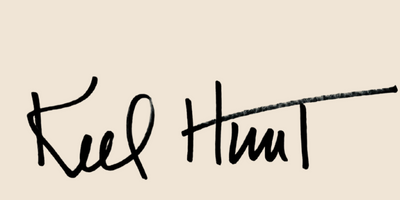The Fire This Time - Part 2
/‘If we do not falter in our duty now, we may be able, handful that we are, to end the racial nightmare, and achieve our country, and change the history of the world.’ -James Baldwin, The Fire Next Time, 1962
We need to talk. And soon.
The anti-brutality protests across America over the past week, sparked by the murder of George Floyd in Minneapolis, have broadly challenged police violence against civilians. They have also made a couple of other things quite clear:
Racial differences still keep us from knowing each other as well as we should, especially considering the effects of discrimination that still persist in the lives of many Americans of color.
Moving past that will take a higher level of engagement with each other for a deeper understanding by more white folks of what life is like for black and brown folks in our country.
The social legacy of human slavery over 400-plus years still abides in a hundred ways. That’s a lot of history, and it makes for a different burden for people living under its lingering shadow. It’s no wonder that in 2020 we don’t even speak the same language on issues like fair housing and body cams, or why a young black man will not go out and jog.
None of us can expect to live in peace until we know each other better across a racial divide that persists in the year 2020.
Before we can hope to bridge our divisions of racial experience – before we can imagine together how to combat, with new policy, the procedures that permit police misconduct – we need to know each other better. Without that, most of us cannot even acknowledge what the activists are talking about. And this is not just the responsibility of municipal governments, but deeper understanding among fellow citizens will also inform the work for better schools, good health, and responsible development.
I am not referring here to the thugs who burned and defaced property, but to the larger body of citizens who demonstrated peacefully in the classic way. The responsible demonstrators were loud and insistent, but they have made a valuable point. In fact, I cannot imagine anyone devising a more effective public message, unified over so many U.S. cities in the same week. It was a profound national statement against brutality.
But what now? Communities should continue the discussion that these activists have started. The first goal should be to try hard to hear one another about the very different lives we live. We should all look for opportunities, large and small, to listen to other citizens whose lives have unfolded differently than our own.
Turn the demonstrations into conversations, in a dozen places across the city.
We need this broader conversation with each other now. I cannot hope to understand someone in another demographic group until we know each other better as humans – and then, hopefully, as friends. And only then can communities effectively work on making policies better with new laws, procedures, and a common will to respect all people.
This work will not be easy. But here in Nashville we know how beneficial such communication can be to a city. We have seen it; some even call it “the Nashville Way.” Over time, the process details have been different in every decade, of course, but going this way now could be a model that helps the whole nation heal.
There will be complications: How do we have a public conversations in the time of coronavirus? That’s a technical challenge, but if enough of us are willing we can find a way to talk AND distance. All this only requires, as it always does, good organization and able leaders.
Who should lead this? I see lots of potential leaders in our city, bright women and men who are capable of designing and running such a process. Some of these are leaders in the Equity Alliance, Emerge Tennessee, the service clubs, the “Millions of Conversations” initiative, the clergy, our universities. To do this, leaders will need training, but that starts with a willing heart.
This is not about the aftermath of one demonstration but the longer term of our lives together. It’s about the survival of our city - our community - and how to give our children and theirs a better life. This is about social salvation.
I am willing to join in. Are you?
© Keel Hunt, 2020


